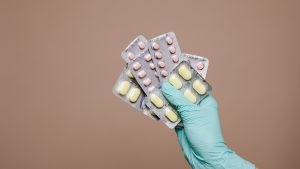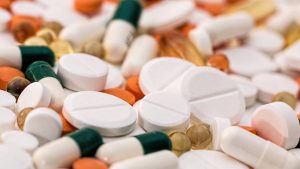Conventional modern medicine is referred to as allopathic medicine. It includes pharmaceutical or surgical administration and counseling, and lifestyle changes.
Alternative and complementary medicine includes acupuncture, homeopathy, herbal medicine, art therapy, traditional Chinese medicine, etc.
Medical specialties
There are numerous branches and facets of modern medicine. Here are a few examples.
Clinical application
In a hospital or other healthcare facility, a clinician is a health practitioner who works directly with patients. Clinicians include nurses, doctors, psychotherapists, and other professionals.
Clinicians are not all medical specialists. Because they do not work with patients, researchers and laboratory workers are not considered clinicians.
Using knowledge gained from training, research, experiences, and clinical judgment, the physician evaluates the individual to diagnose, treat, and avoid disease.
Research in biomedicine
This field of research aims to identify ways to prevent and treat diseases that result in illness or death.
Biomedical researchers examine biological processes and disorders using biotechnology tools. They want to create effective treatments and cures.
Biomedical research necessitates meticulous testing, development, and evaluation. Biologists, chemists, medics, pharmacologists, and others are involved.
Medications
Pharmaceuticals and medicines, as well as how to use them, are studied in this discipline.
Doctors use medication and other health professionals to diagnose, treat, cure, and prevent disease.
Surgery
Surgical operations are required to diagnose and treat certain diseases, malformations, and injuries. Instead of medication, they use instrumental and physical methods.
A surgeon can remove or replace ill tissue or organs and retrieve tissue for biopsy. They may remove unwanted tissue and submit it to a doctor for a diagnosis.
Medical supplies
Health professionals use several gadgets to diagnose and treat illnesses and other conditions, prevent symptoms from worsening, replace a damaged part — such as a hip or a knee — and so on.
Test tubes to advanced scanning equipment are all examples of medical devices.
Complementary and alternative medicine
This includes any healing practice that isn’t part of mainstream medicine. Techniques differ greatly, herbs are used, “channels” in the body are manipulated, relaxation is practiced, etc.
Clinical trials
Researchers investigate whether diseases are present, why they occur, what can be done to treat or prevent them, what causes them to occur more frequently, and many other facets of health.
Psychotherapy
Counseling, cognitive behavioral therapy (CBT), and other forms of “talking cure” might benefit persons suffering from mental health issues such as depression, stress, or chronic pain.
Occupational and physical therapy
These treatments do not require medication, though medication may be used in conjunction with them
People with musculoskeletal conditions can benefit from physical therapy to increase their strength and flexibility.
Medical specialties
There are various fields of medicine. Here are a few examples of what I’m talking about.
- Anatomy is the scientific study of the physical structure of the human body.
- A biochemist studies chemical compounds and their interactions with the human body.
- Biomechanics is a discipline of biology that uses a mechanical approach to study the structure and function of biological systems in the body.
- The application of statistics to biological domains by researchers is known as biostatistics. This is essential for the success of medical research and many elements of medical practice.
- Biophysics is a discipline of physics that models and understands biological processes by combining physics, mathematics, chemistry, and biology.
- Cytology is a discipline of pathology concerned with the medical and scientific microscopic examination of cells.
- Embryology is a discipline of biology that examines the formation, early development, and growth of organisms.
- Endocrinology is the study of hormones and their effects on the human body.
- Epidemiology is the study of disease causes, distribution, and control in populations.
- Genetics is the study of genes and how they affect one’s health and physique.
- Under a microscope, histology entails examining the shape of structures, and microscopic anatomy is another name for it.
- Microbiology is the study of organisms that are too small to be seen with the naked eye. Microbiology encompasses bacteriology, virology, mycology (the study of fungi), and parasitology.
- Neuroscientists study the nervous system and the brain and disorders that affect the neurological system. Neuroscience includes two aspects: computational modeling and psychophysics. Different types of neuroscience include cognitive neuroscience, cellular neuroscience, and molecular neuroscience.
- Nutritionists research how food and drink affect health and how they may be used to treat, cure, and prevent various diseases and ailments.
- The study of disease is known as pathology. A pathologist frequently works in a laboratory, where they perform tests on samples of blood, urine, or body tissue to aid in the diagnosis of diseases and ailments.
- Pharmacology is the study of pharmaceutical treatments, sometimes known as pharmaceuticals, including their origins, how they work, how the body reacts to them, and what they are made of.
- Radiology: X-rays and scanning equipment are used by radiologists during diagnostic procedures and, on occasion, as part of treatment.
- Toxicology is the study of poisons, including what they are, how they affect the body, and how to detect them.
- These aren’t all of medicine’s facets and specialties. Patient transportation, dentistry, and the numerous various specializations that physicians can choose from, such as emergency medicine, employ many people.





